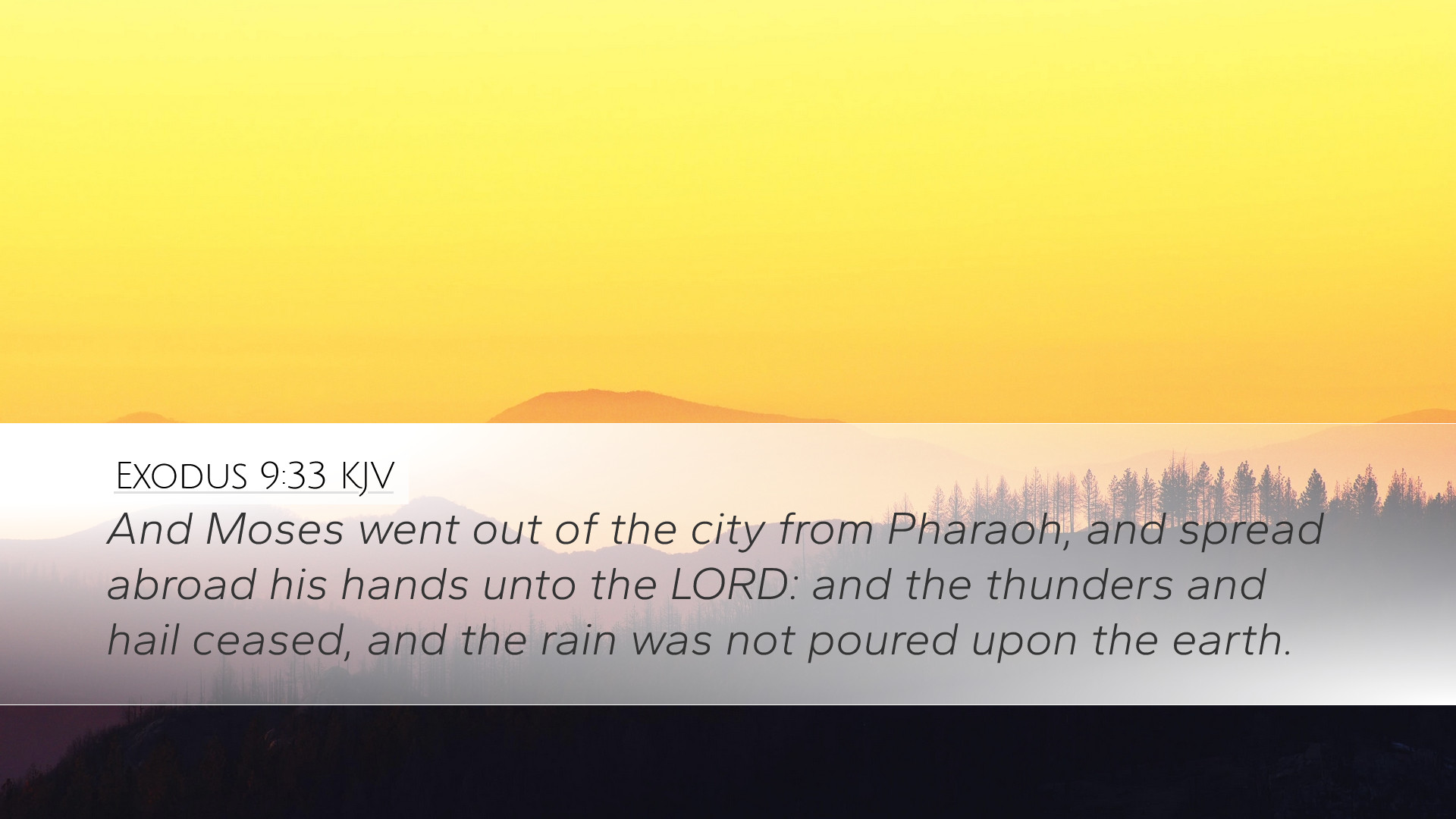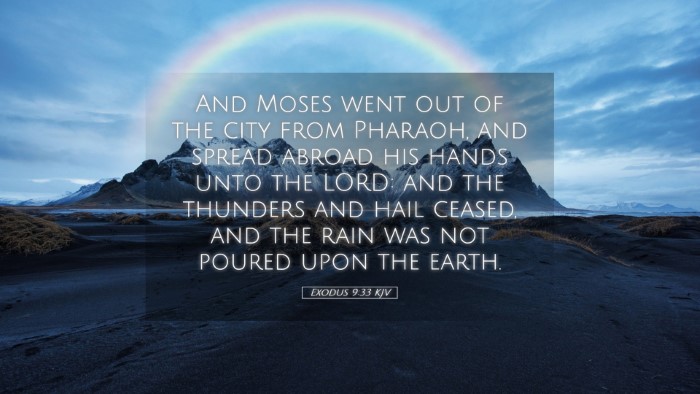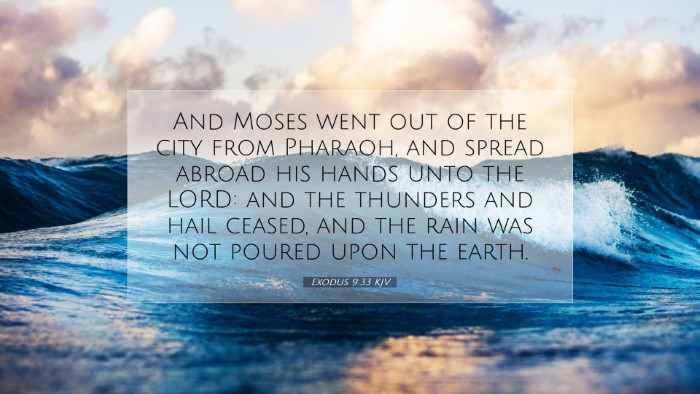Exodus 9:33 – Commentary Insights
Exodus 9:33 states: "And Moses went out of the city from Pharaoh, and spread abroad his hands unto the Lord: and the thunder and hail ceased, and the rain was not poured upon the earth." This verse encapsulates a pivotal moment in the narrative of Egypt's plagues and reveals critical theological implications about obedience, intercession, and God's sovereignty.
Contextual Overview
The backdrop of this verse is set during the series of plagues that God unleashed upon Egypt as a demonstration of His power and a judgment against Pharaoh's hardened heart. The context reveals the struggle between divine authority and human obstinacy, culminating in this episode where Moses intercedes on behalf of both the Egyptians and the Israelites.
The Role of Moses
- Moses as Intercessor: Matthew Henry remarks on the prophetic role of Moses, illustrating how he serves as a mediator between God and Pharaoh. His actions display the importance of prayer and supplication in moments of crisis.
- Demonstration of Faith: Albert Barnes highlights that Moses, by spreading his hands, signifies an act of faith and reliance on God. This gesture is emblematic of pleading and submission to divine will, which is crucial for spiritual leaders.
- Physical Expression of Prayer: Adam Clarke emphasizes that this physical act illustrates a visible form of prayer, suggesting that our body posture can reflect the seriousness of our spiritual intentions.
Divine Authority and Power
The cessation of the plague is not merely a result of Moses' intercession; it is also a direct manifestation of God's sovereign authority over nature. This aligns with the theological assertion that God's will prevails over all adversities.
- God's Control Over Nature: Matthew Henry notes that God commands the elements, reinforcing the belief that He has power over all creation, including weather phenomena such as thunder and hail.
- Judgment and Mercy: Albert Barnes points out that God's response, in halting the storm, signifies both judgment and mercy. While the plagues serve as punishment for Egypt’s iniquity, God's willingness to relent showcases His desire for repentance.
- Call to Repentance: Adam Clarke interprets this moment as an essential call for Pharaoh and the Egyptians to recognize their transgressions against God and consider submitting to His sovereignty.
Implications for Today
The message from Exodus 9:33 carries profound lessons applicable to believers today. There are several critical takeaways that can inspire pastors, theologians, and students of the Bible.
- The Power of Prayer: Moses’ act of prayer reminds us of the power and necessity of intercessory prayer in our lives and ministries. It encourages believers to approach God in times of need and act as conduits for grace.
- Understanding God's Sovereignty: The narrative invites us to acknowledge God’s ultimate control over our circumstances. Recognizing His authority can provide comfort amidst life's storms.
- Encouragement to Repent: Just as Pharaoh was called to repent, the contemporary application would implore individuals to turn from sin and embrace God's mercy.
Conclusion
Exodus 9:33 captures an essential theological theme surrounding divine intercession, authority, and mercy. The interplay between Moses and God serves as a prototype for the believer's relationship with God, emphasizing faith's role in facing challenges. By heeding the lessons found in this verse, modern believers can deepen their understanding of prayer, repentance, and God’s supreme authority over all creation.


